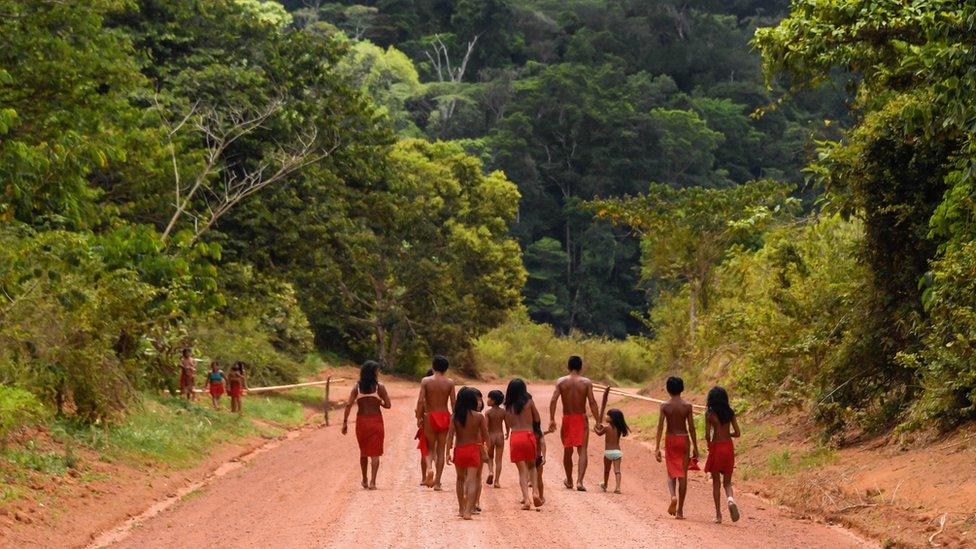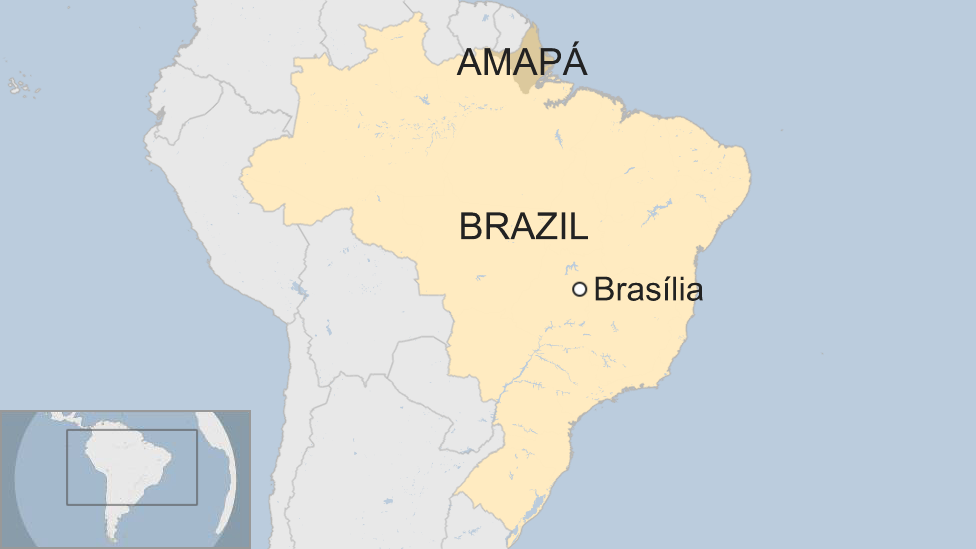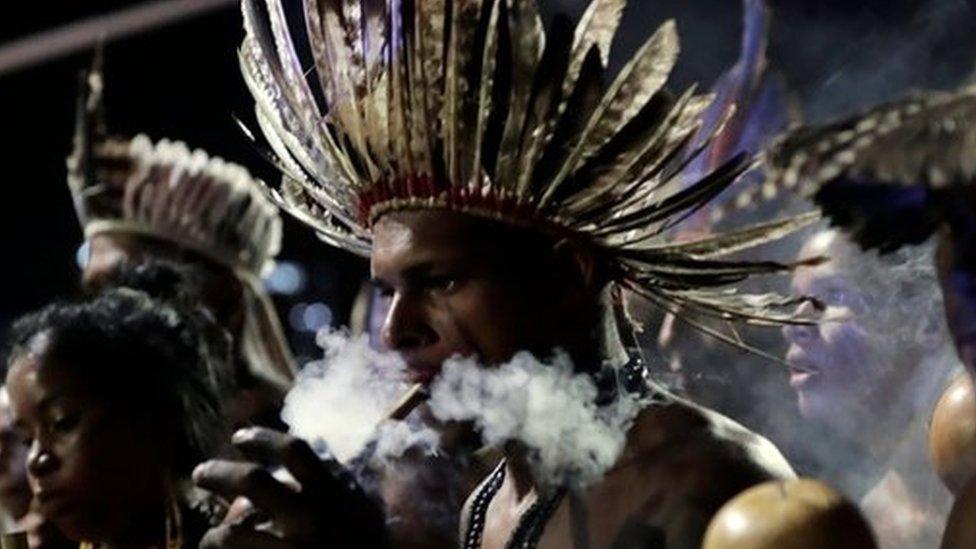Brazil's indigenous people: Miners kill one in invasion of protected reserve
- Published

The Wajãpi indigenous community live in a remote area in northern Brazil
Heavily armed gold miners have invaded a remote indigenous reserve in northern Brazil and stabbed to death one of its leaders, officials say.
Residents of the village in Amapá state fled in fear and there were concerns violent clashes could erupt if they tried to reclaim the gold-rich land.
Police have arrived in the area.
Tensions in the Amazon region are on the rise as far-right President Jair Bolsonaro, who is against the reserves, vows to open some of them to mining.
Mr Bolsonaro says the indigenous territories are too big given the number of people living there, and critics accuse him of encouraging illegal mining and invasions of reserves.
The group of 10 to 15 heavily armed miners overran the village Yvytotõ of the Wajãpi community and "tensions were high", according to Brazil's indigenous rights agency, Funai.
The residents fled to the Mariry village, some 40 minutes away by foot, and have been warned not to try to come into any contact with the invaders.
Based on accounts from the Wajãpi, Funai said the miners had killed 68-year-old Emyra Wajãpi, whose body was found with stab marks in a river near Mariry on Wednesday. It said, though, it had not been to the crime scene because of the difficulty of access.
Despite the rising tensions, killings of indigenous leaders in Brazil are rare.
The incident appears to confirm the worst fears for the fate of Brazil's protected indigenous territories, the BBC's Julia Carneiro in Rio reports.
Federal police and an elite force arrived in the area on Sunday, and both the federal police and the federal prosecutors' office said they will investigate the events, reported by a local leader on Saturday.
"This is the first violent invasion in 30 years, external since the demarcation of the indigenous reserves in Amapá," Senator Rodolfe Rodrigues told local newspaper Diário do Amapá (in Portuguese), warning of a "blood bath".
The Uru-Eu-Wau-Wau are among groups that say Brazil's president wants to allow deforestation in protected areas
The 1,200 members of the Wajãpi community, external live in dozens of villages in a 600,000-hectare reserve in Amapá, next to French Guiana.
Speaking earlier on Saturday, Mr Bolsonaro said some of the indigenous territories were on "very rich [mineral] land", external and that he was "looking for the 'first world' to explore these areas in partnership and add value," according to O Globo newspaper (in Portuguese).
"That's the reason for my decision to get closer to the US. That's why I want a person of trust in the embassy in the US," said Mr Bolsonaro, who wants to appoint his own congressman son, Eduardo, as ambassador.
He has not commented on the events in Amapá.

Mr Bolsonaro, who took office in January, has promised to integrate indigenous people into the rest of the population and questioned the existence of their protected territories, which are rights guaranteed in the country's Constitution.
The president has also criticised the environmental protection agency, Ibama, and accused the national space institute, Inpe, of lying about the scale of deforestation in the Amazon.
Activists say the relaxation of the protections could lead to greater deforestation of the Amazon rainforest and threaten the existence of indigenous people.
- Published25 April 2019
